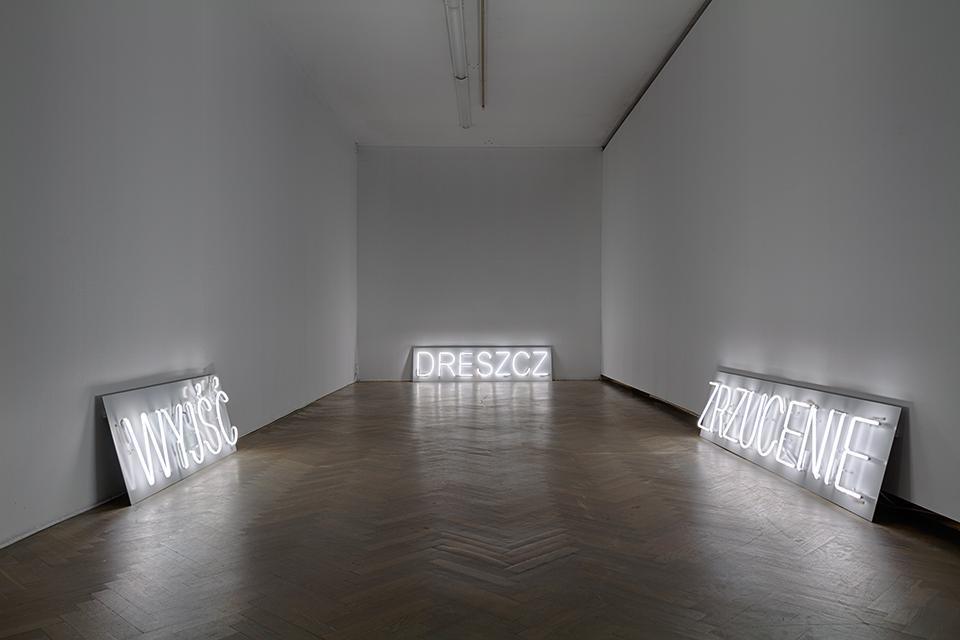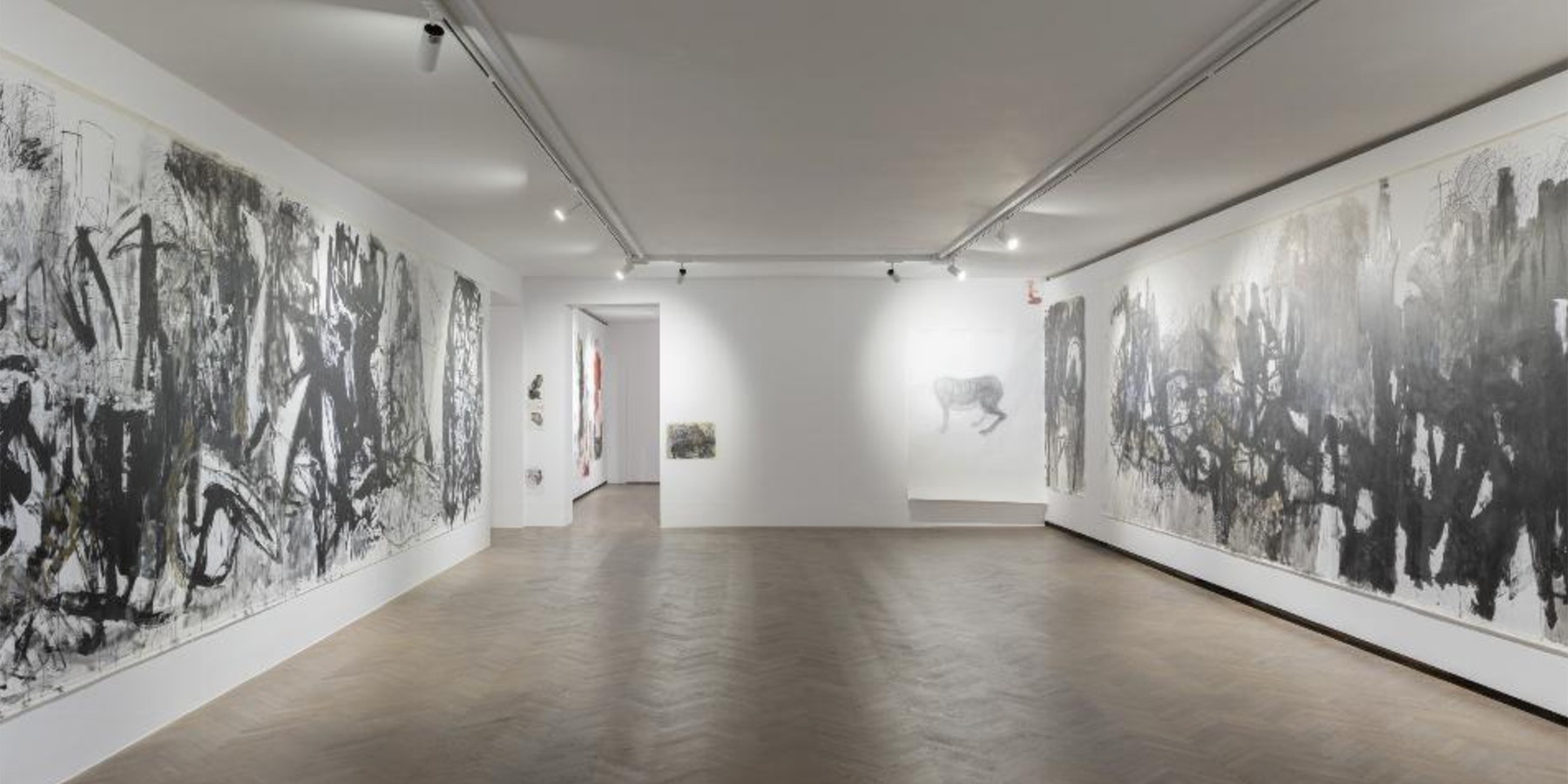Mirosław Bałka
Jutro nie przyjdzie nigdy [Tomorrow Will Never Come] – WYJŚĆ, DRESZCZ, ZRZUCENIE, 2016
Mirosław Bałka, Katarzyna KrakowiakJutro nie przyjdzie nigdy [Tomorrow Will Never Come] – WYJŚĆ, DRESZCZ, ZRZUCENIE, 2016, installation, 3 neon signs, sound.
Collection II of the Arsenal Gallery in Białystok. Works donated to the Arsenal Gallery by the artists
/ photo: Maciej Zaniewski

Six installations Tomorrow Will Never Come were produced specially for Katarzyna Krakowiak and Mirosław Bałka’s exhibition under the same title, held at the Arsenal Gallery in Białystok (2016). They consist of words and signs made from neon tubes, accompanied by a sound of varying intensity. The project springs from a universal reflection on the human condition in the contemporary world: the sense of drowning in superfluous information, the helplessness when faced with words used as a tool for manipulation, and the fear aroused by quickly changing realities. The ominous title, which bluntly indicates that the future is only a projection, pushes the viewer out of their comfort zone.
Constructing the constellations of words, the artists made use of phrases that carry strong messages, mainly referring to their own feelings and experiences, such as “FAKE GO”, “DESZCZ” [rain], “ZAGROŻENIE” [danger], “BEZ SENSU” [nonsense], “PAMIĘĆ” [memory], “ZOSTANIE” [will remain], “ŻÓŁTACZKA” [jaundice], “NIERÓŻAŃCOWE” [non-rosary], “DRZAZGI” [splinters], “SEXY”. Bałka and Krakowiak pointed to the expressions “MOJA KREW” [my blood] and “FOG HORN” as the key to their installation. The last one, which brings to mind the English word for a sound device used to warn against threats invisible in a fog, evokes the need to constantly find oneself, both in the space of the installation and in the chaos of impulses. The context of the place, Białystok, is also crucial to the meaning of some of the phrases. The expression “MOJA KREW” acquires new meanings in the light of the activity of Alexander Bogdanov (1873–1928), a philosopher, writer, revolutionary, doctor and creative thinker, born in Sokółka near Białystok, whose medical interests included blood transfusion.
Attacking the viewers with words glowing with cold light, Bałka and Krakowiak force them to reconsider the meanings of words and their mutual relations. This consideration requires an actual physical act, since boards bearing the neon phrases are placed on the floor, leaning against the walls. Walking between the neon lights and pronouncing the words in their minds, the spectators construct new systems of meanings. The words evoke different emotions and the space is experienced anew, just as the trajectory of seeing/reading them changes each time. Navigating around the glowing words set in dark, sterile interiors awakens a sensitivity to words and the messages contained therein which is dormant in the spectators’ day-to-day existence.
Izabela Kopania
translated from Polish by Klaudyna Michałowicz

PLAN YOUR VISIT
Opening times:
Thuesday – Sunday
10:00-18:00
Last admission
to exhibition is at:
17.30